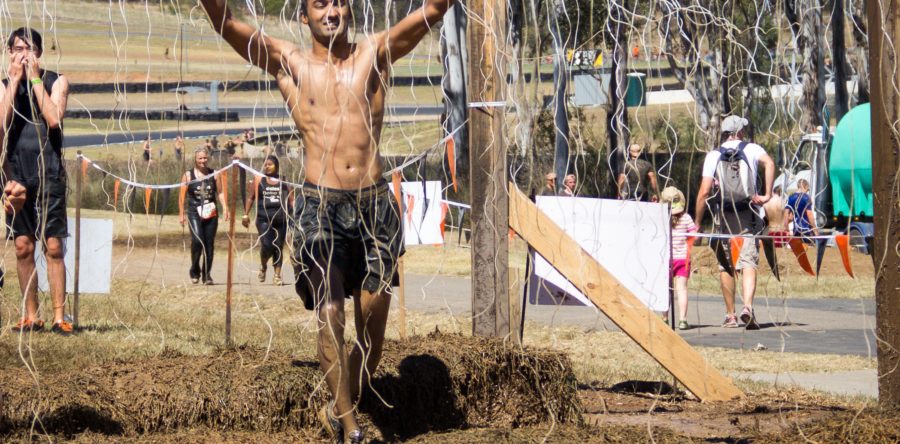The 4C's are generally considered the main mental qualities that are important for successful performance in most sports.
- Commitment – ability to continue working to agreed goals
- Concentration – ability to maintain focus
- Confidence – belief in one's abilities
- Control – ability to maintain emotional control regardless of distraction
1.Commitment
Your development and performance output will depend on your commitment to multiple goals over many years. You will have many competing commitments such as work, studies, relationships, social life and hobbies that will distract you, and sacrifices will have to be made at times.
Your commitment can be undermined by:
- a perceived lack of progress or improvement
- not being sufficiently involved in developing the training program
- not understanding the objectives of the training program
- injury
- lack of enjoyment
- anxiety about performance – competition
- becoming bored
- not working as a team player with your coach
- lack of commitment by others
Setting yourself realistic goals in line with your values and desired outcomes (and not just doing it to please others), can give you a sense of ownership and responsibility. This will help you to become more committed to achieving your set goals.
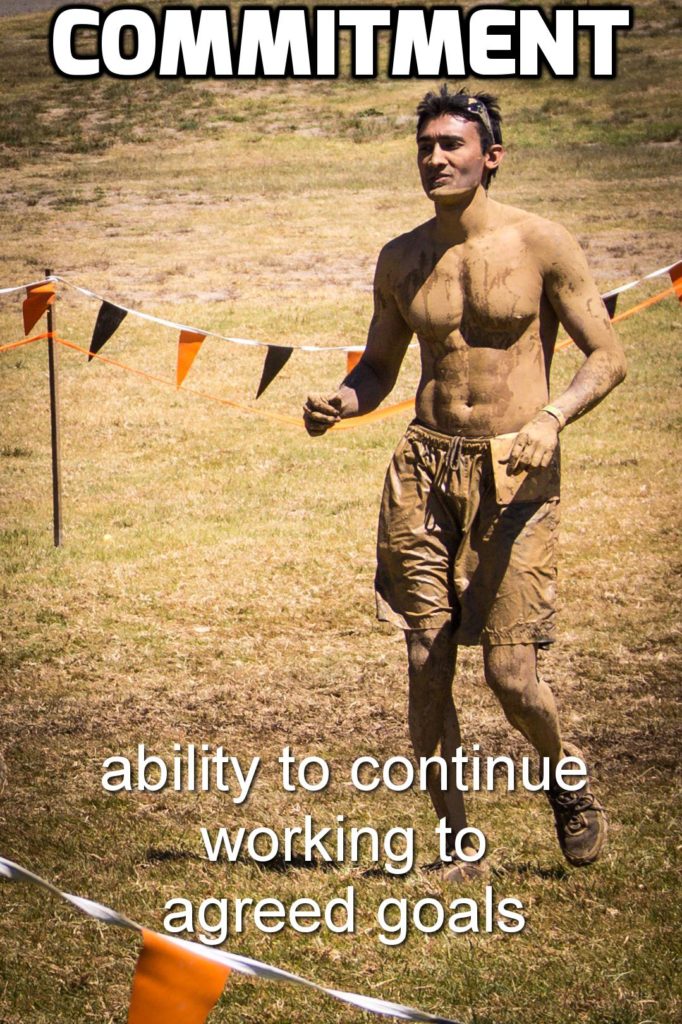
Tough Mudder Circuit, NSW
2.Concentration
Concentration is the act of focusing all your attention on one thing, without being distracted by anything else. If you lack concentration when performing a task, you will not be able to do the task to your full ability.
Different sports required different levels of concentration:
- Sustained concentration – full contact fighting, distance running, cycling,
- Short bursts of concentration – katas, cricket, golf, athletic field events
- Intense concentration – point sparring, sprinting events,
Common factors which can distract our concentration can include:
- anxiety
- fatigue
- mistakes
- negative thoughts
- opponent
- external noise
- weather (e.g. feeling too hot/cold)
Each person will have a different preferred method or strategy to improve concentration. I have found deep breathing exercises helpful. I have also found that rehearsing drills/routine in different environments and with different sparring partners/students (even those who practise different styles from me) has helped me to be more flexible and prepared when unexpected factors/events occur in competitions. This means I can sustain my concentration rather than being distracted by these external stimuli.
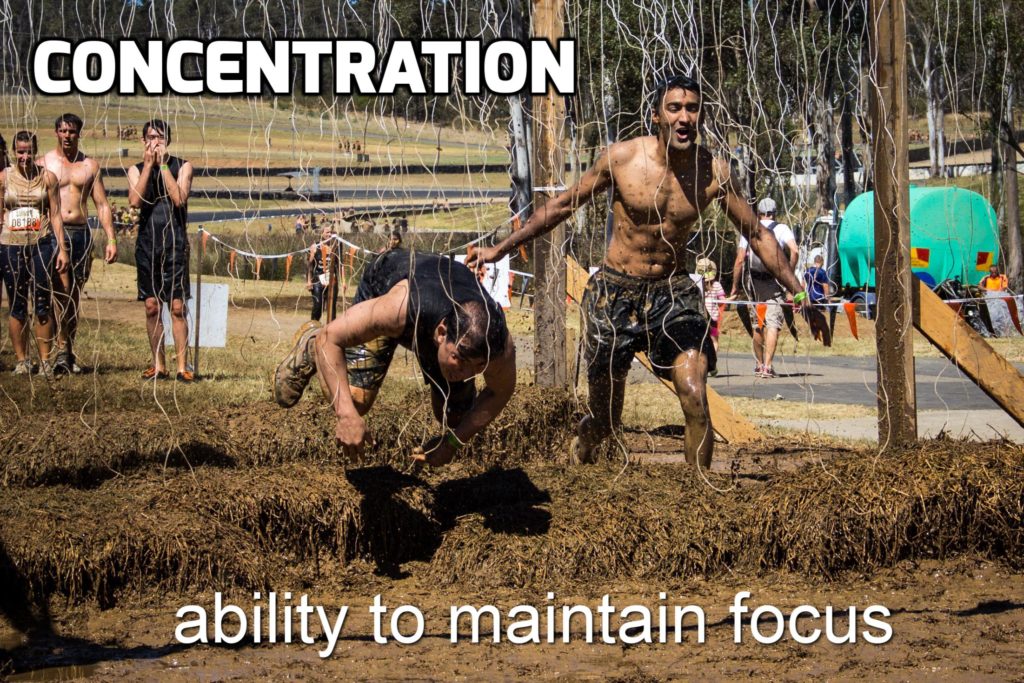
Tough Mudder Circuit, NSW
3.Confidence
Confidence comes from the comparison you make between your goal, and your perceived ability to reach that goal. When you have self-confidence you believe you CAN achieve your set target or goals.
The following could be some examples of how people with high vs low self-confidence think and act:
| High self-confidence |
|---|
| Thoughts – Tend to be positive/optimistic and focused on success |
| Feelings – Tend to feel excited, calm, elated, prepared |
| Focus – Their attention is focused on themselves as well as the task on hand |
| Behaviour – They are able to give maximum effort and commitment, are willing to take chances, persevere even when things are not going to plan, continue to show enthusiasm even when there are set backs, are open to learning, and take responsibility for both success and failures |
| Low self-confidence |
|---|
| Thoughts – Tend to be negative/pessimistic, full of self-doubt or focused on defeat or failure |
| Feelings – They tend to feel tense, afraid, anxious and often experience a desire to pull out of the task or give up |
| Focus – They tend to be distracted from the task at hand and are more focused on what others are doing, or on less relevant factors (such as the coach, umpire, environment) |
| Behaviour – They often put in less effort, are likely to give up, are unwilling to take risks (rather play safe), and blame others or external conditions for outcomes |
The following are some tips on how you can improve self-confidence:
- Use mental imagery. Try and visualise a previous successful performance to remind you of how it looks and feels. Or visualise possible scenarios that could happen and how you will cope with each of them.
- Change your self-talk. Be aware of what you are telling yourself. Try and be realistic rather than just positive.
- Make sure you are setting realistic goals for yourself (i.e. using S.M.A.R.T principles). As you see yourself achieving your short-term goals and getting closer to your long-term goal, your confidence grows.
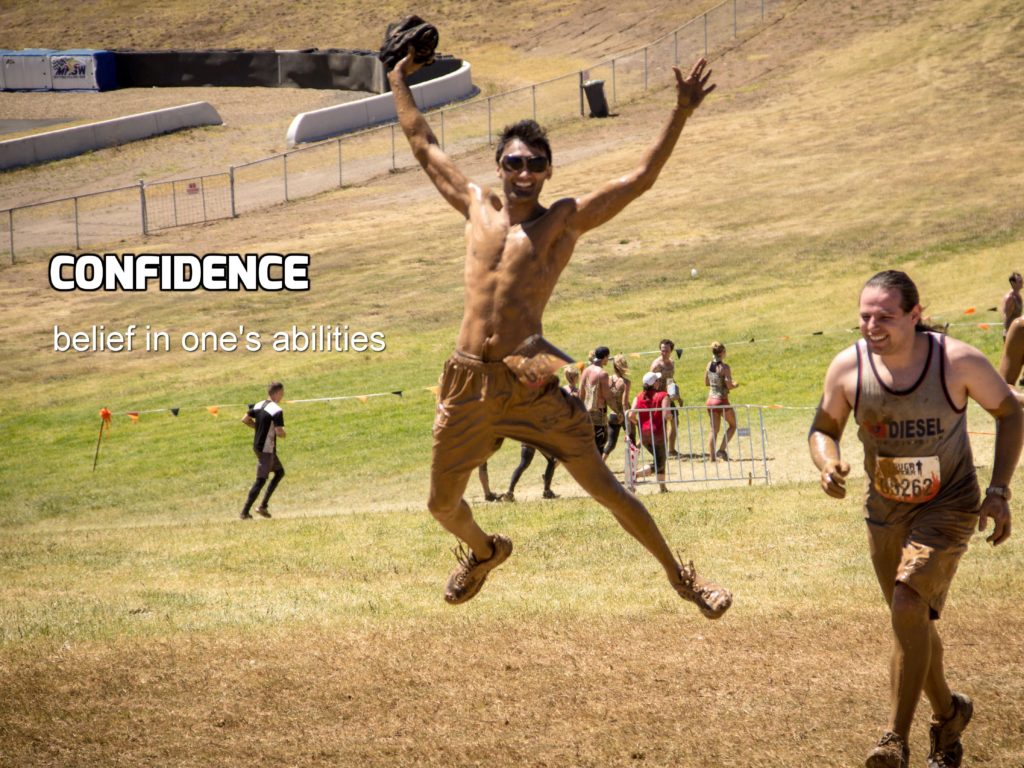
Tough Mudder Circuit, NSW
4.Control
Being aware of your feelings and understanding the reason for them is an important step in helping you gain emotional control and stability. The ability to maintain control of emotions, and remaining calm and positive in any situation is an essential criteria for success.
| Anxiety can come in two forms: |
|---|
| 1. Physical – Such as butterflies, sweating, nausea, feeling tense and on edge, having the urge to rush to the toilet |
| 2. Mental – Such as worry, negative thoughts, confusion, being easily distracted and lacking concentration |
In my personal experience there have been times when I have felt anxiety and anger, and this resulted in a poor performance.
Anxiety and anger are two sides of the same coin. When we are angry, we tend to be caught up in the physical sensations in our body or the thoughts in our mind. This then causes you to lose focus on the task at hand, which means performance deteriorates and confidence starts to fade. The resulting frustration then acts as a fuel for more anger!
Learning and practising mindfulness meditation or relaxation techniques can be a great way to reduce anxiety and anger levels, and maintain emotional control.
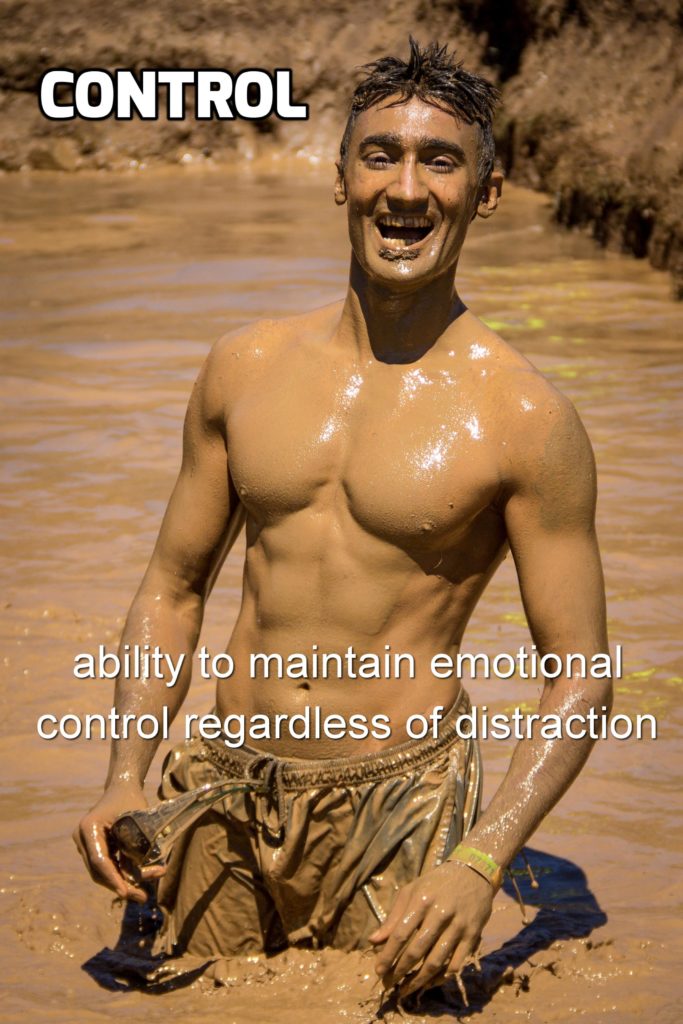
Tough Mudder Circuit, NSW
Successful emotional states
The following are emotional states experienced with successful performance:
- Happy – felt that this was my opportunity to demonstrate an excellent performance. Felt I could beat anybody.
- Calm and nervous – Felt nervous but really at ease with these feelings. I accepted and expected to be nervous but felt ready to start.
- Anxious but excited – Felt so ready to compete but a little nervous. Nerves and excitement come together.
- Confident – I remembered all the successful training sessions and previous best performances.
